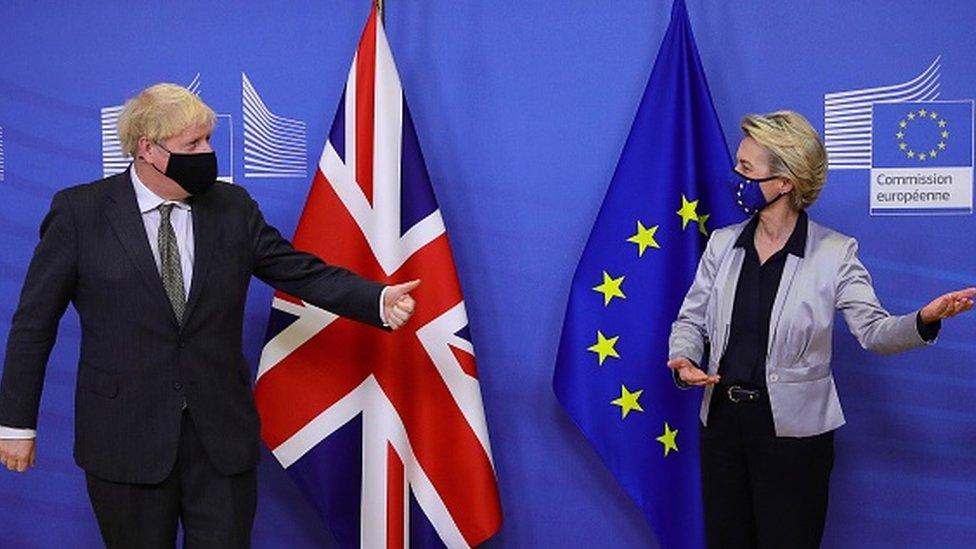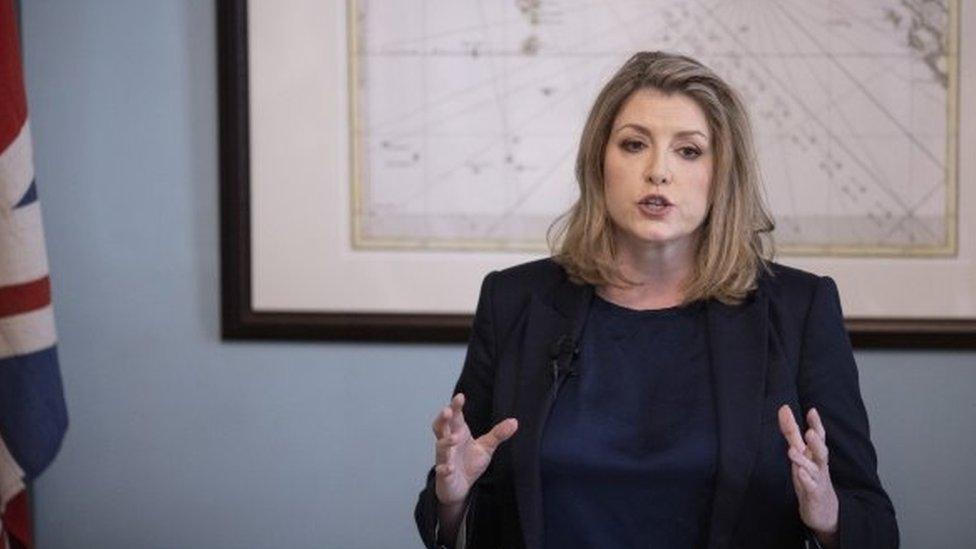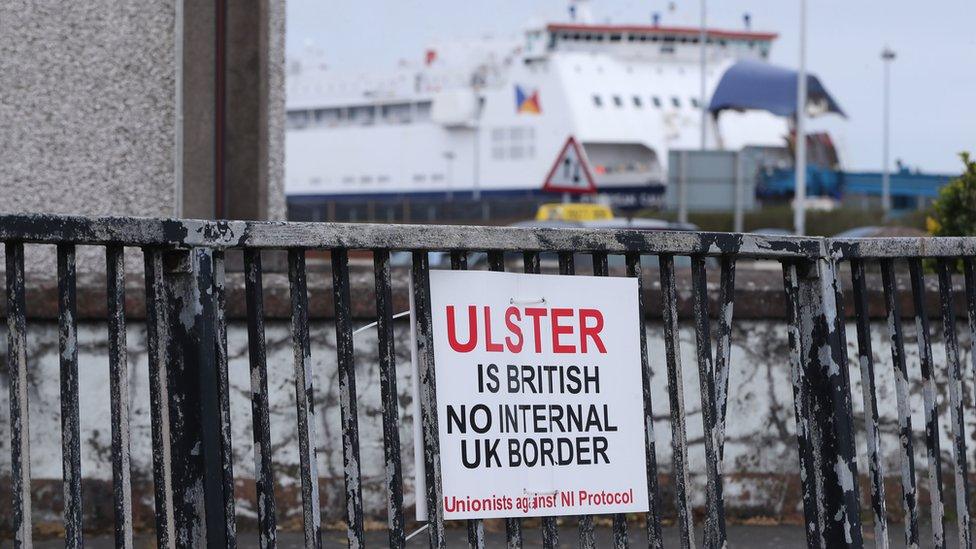Brexit: UK's divorce bill from EU could rise to £42.5bn
- Published
- comments

Boris Johnson sought to change part of the deal in talks with European Commission President Ursula von der Leyen
The UK's Brexit divorce bill from leaving the EU could rise to £42.5bn, potentially adding billions to payments, the government says.
Treasury minister Simon Clarke said inflation meant the bill could be up to £7.5bn higher than initially estimated.
The UK struck a deal to pay the EU for outstanding spending commitments after leaving the bloc in January 2020.
The Liberal Democrats said the "terrible deal" was costing UK taxpayers billions.
Originally, the government estimated the bill, which covers spending commitments made during the UK's membership of the EU, would be between £35bn and £39bn.
A ministerial statement, published on Thursday this week as Parliament broke up for summer, external, says "the latest estimate of £42.5bn shows an increase against the original range".
Mr Clarke's statement says the increase is "primarily due to the most recent valuation of the UK's obligation under Article 142 for EU pensions".
He cited assumptions about inflation - in other words rising prices over time - as one of the main drivers of the increase.
"However, given this is a multi-decade liability, the variables used in this forecast will continue to fluctuate up and down," Mr Clarke said.
Global economic turmoil has sent inflation soaring to 40-year highs this year, drastically increasing the cost of food and fuel.
The Brexit divorce bill - agreed to by Prime Minister Boris Johnson's government - covered pension contributions for EU staff, as well as funding for three of its research programmes.
Meanwhile, the EU will pay back money the UK committed to the European Investment Bank (just over £3bn) and the European Central Bank (about £50m), among other things.
In July 2021, Mr Johnson's government rejected an EU estimate of a £40.8bn total bill.
Downing Street insisted the bill stood between £35-39bn, and the Treasury put the latest overall net estimate of the financial settlement at £37.3bn, external.
Pre-recorded bongs from Big Ben played out as the UK left the European Union
"This Conservative government's terrible deal, backed by [Conservative leadership contenders] Liz Truss and Rishi Sunak, is costing British taxpayers billions of pounds," Liberal Democrat foreign affairs spokesperson Layla Moran said.
"This is the price of years of Conservative chaos and neglect."
She urged Conservative ministers to "come clean about how much more their bad deal will cost the country in future".
A Treasury spokesman said: "The unprecedented recent rise in inflation and changes in discount rates have increased our pensions liability, which is the biggest reason for the increased estimate.
"The true cost of the settlement is confirmed when payments are made, based on the value at the time. The Treasury continues to monitor and verify these payments in line with the negotiated agreement."
The financial deal was negotiated by former Prime Minister Theresa May as part of the withdrawal agreement for the UK's departure from the EU.
Her successor Mr Johnson sought to renegotiate parts of the agreement but did not change the financial aspect, despite at one point suggesting withholding the money and using it as a bargaining chip in future negotiations with the EU.
The withdrawal agreement - along with the financial settlement - became law in January 2020.
Related topics
- Published18 July 2022

- Published13 June 2022

- Published1 June 2022
